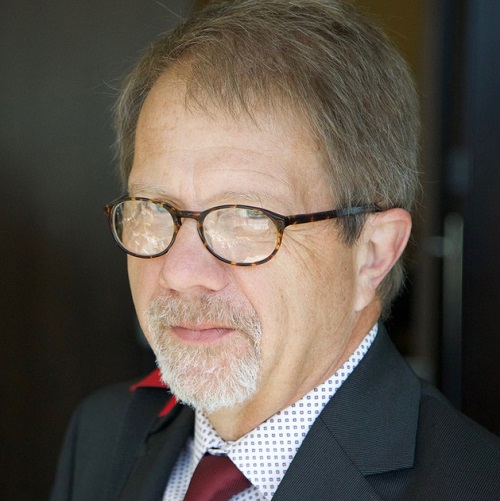Commentary on Psalm 78:23-29
When one approaches an abstract painting by any one of the 20th century abstract painters—Mark Rothko, Jackson Pollack, and so on—they are met by art work that prompts cognitive dislocation and reflection.1
Some will look at a Pollack painting and quickly conclude that anyone could do it or swiftly conclude that it looks quite similar to a drop cloth I have for painting projects around the house. Rothko’s corpus of work might elicit similar response.
Yet, it seems the reflection would be more about how his work looks like a bad wall painting job where a number of spots were missed and where the tone is not quite consistent with the rest. It is as if the average viewer of abstract art wants to place the body of work in a category of home improvement or children’s art. Those who have studied art or who are more comfortable with ambiguity or who want to suspend quick judgment about the quality of art might conclude that the works themselves merit further reflection not only about the art and the artist who created them, but about our own cognitive, affective, and visceral reactions to them as art and gateways to the divine.
They are capable of evoking strong emotion on the part of the viewer and scratch the surfaces and underbellies of one’s theological and anthropological reflection. Some people have been found weeping in the Rothko chapel as they contemplated the art before them. What they thought they knew as one thing opened them internally to new insights about themselves and their own spiritual journey.2 The lack of narrative depiction of things already known has resonance with a contemplative journey toward sitting with the God who exists both within and beyond human comprehension, definition, or knowing completely.
Psalm 78 functions roughly like this for me as I read it. On one level is seems to be a rather flat recounting of major events in the history of the people of God. Ordinary time is pictured as something that is punctuated by the interventions of God at various moments that later become touchstones for subsequent reflection about the activity of God in the past as relevant for the present.
Maybe the poetry of this Psalm invites reflection about what we have seen and know to be true even though we cannot clearly define it in the present. Maybe it is like seeing fossilized footprints of a dinosaur in a limestone rock. The beast that lumbered over soft soil 65 million years ago had a host of attributes—some of which we know and some of which exist outside our capacity to know. Maybe it isn’t all that different from trying to imagine the smell of its skin, the color of its eyes, the sound of its breath, the texture of its brow, and the taste of its flesh.
We may want to know but we cannot. Yet knowing that the dinosaur existed and embodied all of those attributes still exists outside of our capacity to really know what those attributes were with precision. The beast cannot be resurrected from fossilized bones by human desire.
For some this Psalm may appear to be like just one more time around the old house looking at the same walls we have seen for years, gazing on the same objects adorning the walls that have been there for perhaps more than a decade, the same paint and trim, the same window treatments, and in short, the same old scene. We know it so well that we convince ourselves that there is nothing new to notice. Yet, Psalmist poetry has power breathing within it to provoke new ways of seeing the same old things — like Pollack and Rothko with ordinary oil paint. Maybe there is something more to discover or something new to see in this Psalm that we had not noticed previously.
For example, when walking through the rooms of my house I am often struck by how different the same room can look at different times of the day or during different moods I am in as I walk through them. For example, my living room will look dull and cave like in the evening when the light is dim. It can even seem cozy or quaint. Yet, because of the paint tone, when sunlight enters the room during the late afternoon the once cave like wall is transformed into a bright limestone color rivaling any stone in the walls surrounding old Jerusalem.
How I experience this room can depend on a host of factors that are cognitively, affectively, and environmentally related. So it is with poetry. Our own mood can affect the way we read or hear it. Our own mental frameworks forged in economic, political, sociological, psychological, and ideological realms can color the way we see something. Since it isn’t dependent on a direct 1:1 ratio for reading and understanding it, but is often open ended and dependent on the hearer’s capacity to allow their mind and emotions to be open to it, poetry can help us see the familiar stories and experiences of life in new light.
The poet psalmist in these few verses transports readers/hearers to places where the people of God wandered in a great desert of sand. They had been freed from slavery in Egypt by an act of God, yet we learn from Exodus that they were not satisfied with simply freedom to wander the Sinai. They wanted something more. In response, God gave them abundance in their time of scarcity. They were given a great communion feast in which they received more grace than they could comprehend or receive. Skies were raining manna from heaven—grain from God and the food of angels. One would think that would be enough. Yet God provided even more. The winds that blew across the Sinai brought quail in abundance and their bellies were sated. God is good they must have thought. Yet even then the people were not satisfied.
For me, the phrase “what they craved,” verse 29, stands apart from other lines of these verses. We move from the grand sweep of divine activity to the more fundamental dimension of human longing. The skies are pouring forth food through a great aerial cornucopia brought about by the activity of God and still the people crave more. All of the activity from verse 23 through 29 except those final three words concern the work of God for the people of God. Here we discover the reason for God’s gracious acts of kindness. It is in response to what the people desired. Out of love God provides for human wellbeing. In Hebrew the word translated as “crave” or “desire” is thauth. It means basically to long or lust after something. It is a desire that won’t easily be satisfied even when one has received what they want.
Perhaps Psalm 78 is not only a reminder of the grace acts of God for the people of God, but of the human propensity to be dissatisfied with what they have received. Maybe the Psalm carries a message for contemporary society bent on consumption and as such environmental degradation. Maybe we have already been given enough for our needs. We only need to recognize it. Perhaps the Psalm invites a new way of being in relationship with the world and with others who inhabit the planet. Maybe the Psalm invite reflection about the very nature of God and God’s concern about the people of God and the world God has made. The abstract may not be as abstract as we may have initially thought.
Notes
- Commentary first published on this site on Aug. 5, 2012.
- Rothko Chapel http://www.rothkochapel.org/index.php?option=com_content&view=article&id=3&Itemid=6


August 1, 2021